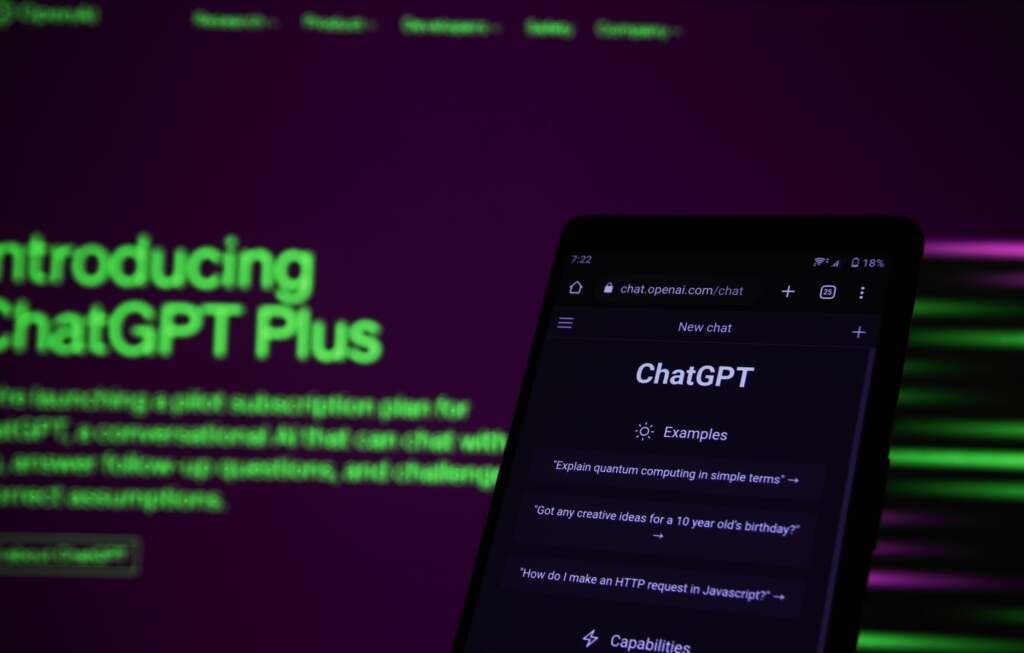
The Future of ChatGPT: What Lies Beyond the Text? In the realm of artificial intelligence, ChatGPT has made a significant impact. It has become synonymous with text generation, answering questions, and assisting in various language-related tasks. However, what lies ahead for ChatGPT is a journey that promises to extend far beyond the boundaries of mere text.
ChatGPT, like its predecessors, has demonstrated an impressive capacity to understand and generate human-like text. It has been an invaluable tool for content creators, students, professionals, and researchers seeking instant assistance in drafting essays, answering queries, or simply finding inspiration for their work. The ability to harness this AI’s textual prowess has been a game-changer for many.
But what’s truly exciting is the potential for ChatGPT to evolve and diversify its capabilities. While it has excelled in text-based tasks, the future holds the promise of AI systems that can communicate not just through written words, but through speech, visuals, and even interactive experiences.
1. Voice Interaction: One of the natural progressions for ChatGPT is the development of its voice-based interactions. Imagine having a conversation with an AI that not only understands your spoken words but responds in a conversational and context-aware manner. This can revolutionize customer support, virtual assistants, and accessibility tools for those with disabilities.
2. Multimedia Content: ChatGPT could expand its horizons by generating multimedia content. Picture an AI that can create compelling videos, podcasts, or presentations based on a simple textual brief. This opens up opportunities for content creators to diversify their output effortlessly.
3. Personalized Experiences: As AI continues to advance, ChatGPT may play a pivotal role in tailoring personalized experiences. From e-learning platforms that adapt content to individual learning styles to entertainment services that curate shows and music playlists based on user preferences, ChatGPT’s understanding of language can facilitate these advancements.
As we venture into this AI-driven future, it is crucial to address ethical considerations. The responsibility of AI developers and users alike is to ensure that these technologies are employed in ways that respect privacy, security, and the principles of fairness and transparency.
The future of ChatGPT is a thrilling journey that extends beyond the confines of text-based interactions. As it continues to evolve, we can anticipate AI systems that not only understand us better but also engage with us in more diverse and personalized ways. With responsible development and utilization, ChatGPT may become an integral part of our daily lives, enhancing the way we communicate, create content, and learn in ways we have yet to fully imagine.
ChatGPT is a language model developed by OpenAI. It is based on the GPT-3.5 architecture, which is an evolution of the GPT-3 model. ChatGPT is designed for natural language understanding and generation tasks, making it capable of engaging in human-like text-based conversations, answering questions, generating content, and providing various forms of text-based assistance.
ChatGPT can be used for a wide range of applications, including chatbots, virtual assistants, content generation, language translation, tutoring, and more. It can understand and generate text in multiple languages and has been trained on a vast dataset containing diverse text from the internet.
While ChatGPT is a powerful tool for natural language processing tasks, it’s important to be aware of its limitations. It may sometimes produce incorrect or nonsensical responses, and it can be sensitive to the phrasing of questions. Additionally, like other large language models, ChatGPT can reflect biases present in its training data.
In summary, ChatGPT is a powerful language model capable of generating human-like text, but it has limitations related to accuracy, bias, and context. Users and developers should be aware of these limitations and use the model responsibly while considering ethical and privacy considerations. OpenAI is actively working to improve its models and address these challenges.
ChatGPT and similar language models have the potential to play a significant role in the future of content writing, but they are not a replacement for human writers. Instead, they can be valuable tools to assist and enhance the content creation process in various ways. Here are some considerations regarding the role of ChatGPT in content writing:
However, it’s important to note that ChatGPT and similar AI models have limitations:
In conclusion, ChatGPT and similar AI models are valuable tools that can assist content writers, streamline content production processes, and provide support in various ways. They have the potential to become an integral part of the content creation landscape, but human creativity, expertise, and quality control remain essential components of content writing. The future of content writing is likely to involve a combination of AI assistance and human creativity to produce high-quality, engaging content.
Ultimately, the best way to use ChatGPT depends on your specific needs and objectives. It can be a valuable tool for content generation, research, and more, but it should be used judiciously with a keen awareness of its capabilities and limitations.
In summary, ChatGPT can be a valuable educational tool when used responsibly and with a clear educational purpose. It can assist students in various aspects of their studies, but it should be integrated into the educational process in a way that promotes learning, critical thinking, and ethical use of technology.
Yes, ChatGPT and similar AI models developed by organizations like OpenAI are generally legal to use, with certain important considerations:
While ChatGPT itself is a tool developed for various applications, the legality of its use depends on how it is employed, the purpose behind its use, and whether it complies with relevant laws and regulations. It’s crucial to use ChatGPT responsibly, ethically, and within the bounds of the law.
Using ChatGPT or any AI language model responsibly is essential to ensure ethical and constructive interactions. Here are some things you should never do when using ChatGPT:
In summary, using ChatGPT responsibly and ethically is crucial to ensure positive and constructive interactions. AI should be a tool used to enhance productivity and knowledge while adhering to ethical principles and legal guidelines.